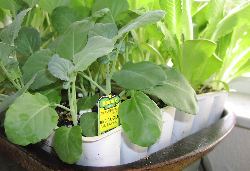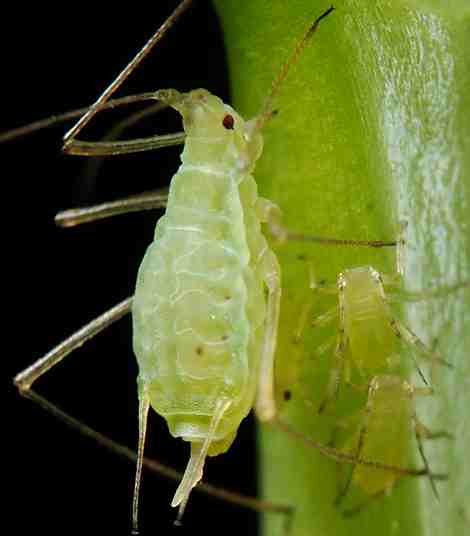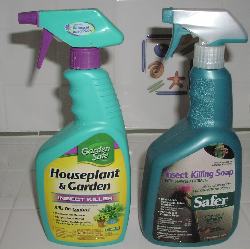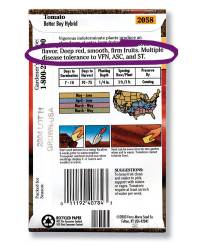This post may contain affiliate links. That means if you click and buy, I may receive a small commission. Please read my full disclosure policy for details.
STARTING SEEDLINGS FOR YOUR
HYDROPONIC GARDEN
Now, for the really easy, keep-it-simple,
jump-start method for starting seedlings for your hydro project!
It’s happened to me… there you are, strolling through the garden section on
a warm spring day (with all the other Walmart Warriors).

Just lookin' for seed packets... what a
variety...
Then it happens... you glance over at the vegetable seedlings. Nice
fat, juicy plump seedlings... hmmm...
Hard to pass by, right? Well, you can actually start
your hydroponics garden from store-bought plants! From Home Depot directly
into your hydro setup. Save weeks and create an instant garden.

Starting Seedlings:
Disadvantages to Store-bought
- More expensive than seed. If you are looking to
make your hydro garden cost-effective, this is not the way to go.
- All the textbooks tell you to never
use store-bought seedlings for hydroponics. Must be a reason...
- Limited varieties. Seeds open up a vast
world of interesting and tasty cultivars. With seedlings, you are limited to what
they have on the shelf that day.
- Danger of pest infestation. Bugs spread faster in a plant nursery than a
kindergarten class! Aphids in particular run rampant, and they are really
hard to see, so you bring them home without even knowing it.

- The dreaded plague! There are also viruses and soil-borne diseases which
you could infect your entire garden with. Some which may be difficult to
eradicate.
- Some plants do not "rough transplant"
well. They don't survive the root rinsing necessary for this method. Plants
which do well for this: Tomatoes, peppers, eggplants, cabbage, broccoli,
cauliflower.
- Plants which do not take kindly to their roots being rinsed off:
Beans, peas, lettuce, herbs, squash, melons. Starting seedlings from seed
are best with these crops.
Hey there! If you stumbled onto this page looking for information on planting seeds for hydroponics, go back to this page: Hydroponic Seeds.
Starting Seedlings:
Simon's Simple Seedling System
After giving the hearty lecture above extolling the virtues of starting
seedlings from seeds instead of transplants, I have a confession to make. We use
store-bought seedlings all the time!
And if you decide to try nursery seedlings, then follow Simon's System:

- Buy a spray bottle each of:
* Safer
Brand Insecticidal Soap- Safer's is the standard
in organic pest control; derived from potassium salts, it's biodegradable
and environmentally safe. It kills many
varieties of soft-bodied insects.* Garden Safe Brand Houseplant and Garden Spray (or
any brand of Pyrethrin). Pyrethrin is made from
chrysanthemums, and is off also a very safe and environmentally friendly
spray. - Before you ever even take your new seedlings into the
grow room, put them in the sink and literally saturate them with
each spray, letting them dry between the two sprays. Make sure to reach the
upper and lower sides of all the leaves, stems, everything. Hopefully by now
you have completely de-loused them!
- Ready to transplant? Break off the peat
pots or carefully pull the seedlings from the plastic beds. Continue one at a
time so the roots don't dry out.
- Gently remove most of the soil from the
root ball, trying to keep as much root intact as possible.
- Hold the roots under warm running water and
rinse away almost ALL of the soil. You can leave a little blob of it, but
not much, or it will drain into your vat of nutrients. And you don't want mud in
there.
- Dig a little hole in the hydro pot medium,
insert the root ball and shore up the plant with medium. Might take a little
propping til they "take root" in their new home.

That's all there is to Simons secret system for starting seedlings.
Chances are excellent that if you follow this procedure, you will not bring any
bugs into your hydroponics grow room.
But listen, once you have some healthy plants growing, there's an even easier way to propagate new baby plants than going to Home Depot on a Saturday afternoon.
Learn all about Cloning Plants here.
Starting Seedlings:
What About Plant Diseases?
If you are starting seedlings from transplants bought in a nursery, you are
risking bringing home some unsavory viruses and fungal diseases. Your best
protection is to buy disease-resistant varieties of plants.
This might take a little research on your part. So make a preliminary visit
to the plant nursery and jot down the names and variety of each plant you have
your eye on. If they are not labeled as disease-resistant, then you will have
some online homework to do before you buy.

What you want to do is choose varieties
bred to resist certain diseases. You can tell which are disease-resistant by
looking carefully at plant tags for initials such as "VFN," which mean the plant
is resistant to Verticillium wilt, Fusarium wilt, and root-knot
nematodes. This is what it looks like on a seed packet.
Honestly, we couldn't figure out what ASC and ST stand for. If you know, please
drop us an e-line.
For more in-depth information on seed selection and disease resistance, visit: Vegetable Garden Seeds.
UH-OH!
If after taking the above precautions, you begin
to see bugs or notice yellowing or wilted leaves, please visit our
Pests & Plagues section.
RETURN
FROM STARTING SEEDLINGS TO HYDROPONIC SEEDS
New! Comments
Have your say about what you just read! Leave me a comment in the box below.

Reply